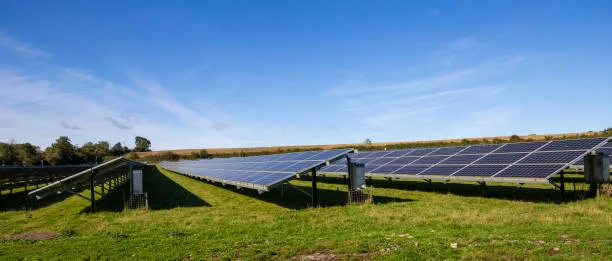In a decisive move to bolster the European Union‘s advance toward sustainable energy, a cohort of EU leaders have manifested their commitment through the inception of the European Solar Charter. This innovative charter is a proclamation of unified intent to enrich the landscape of photovoltaic manufacturing within Europe’s boundaries.
Unified Pledge for Photovoltaic Proliferation
A significant assembly, comprising representatives from 23 EU nations along with the European Commission, convened to enact this ambitious pledge. A ceremonial signing took place in the heart of Brussels, reinforcing their collective resolve to nurture and protect Europe’s burgeoning solar industry. The signatories represent a tapestry of European unity, featuring nations such as Austria, France, Germany, and Italy. Their goal is lucid: to amplify the utilization of solar energy as a cornerstone in fulfilling the EU’s stringent renewable energy targets for 2030.
The Belgian Minister for Energy, Tinne Van der Straeten, who presides over the EU Council‘s rotating presidency, elucidated the central aim of the charter: securing and bolstering Europe’s solar industry’s competitive edge.
An Escalating Solar Trajectory
The year 2023 marked a pivotal milestone, with solar and wind power collectively contributing to a record-breaking 27% of the EU’s electricity production. Despite this substantial growth, challenges remain; the current landscape reveals a heavy reliance on non-European PV panels, with Chinese-manufactured panels accounting for a whopping 97% of the installed capacity.
European leaders are earnestly exploring innovative solar energy applications. These include synergistic endeavors like combining agriculture with photovoltaics, embracing the potential of floating solar arrays, and integrating PV technology onto vehicles and structures. To empower this transformation, the Solar Academy and Renewable Energy Skills Partnership are set to expand their educational efforts, ensuring a skilled workforce for a vibrant solar sector.
Reinforcing Local Solar Manufacturing
Kadri Simson, the Energy Commissioner, highlighted the charter’s role in fostering solidarity and support among the Commission, national executives, and the industry. This alliance aims to cultivate a sustainable, local supply chain for solar panels produced on European soil.
Meanwhile, Walburga Hemetsberger, CEO of SolarPower Europe, has lauded the charter as a momentous acknowledgment of the sector’s strategic importance. However, she emphasizes the urgency for tangible support measures to safeguard domestic manufacturers from the onslaught of unfair competition abroad.
These pivotal measures are envisioned to roll out enhanced procurement guidelines and initiate subsidy assistance in conjunction with EU-dedicated financing under the Net Zero Industry Act (NZIA). Such efforts are crucial to negate the all-too-common dependency on foreign entities.
Renewable Blueprint for Buildings
Signatories have voiced a strong commitment to facilitating the supply of European-made solar PV products, underscoring the rapid execution of the NZIA alongside the Energy Performance of Buildings Directive (EPBD). The latter plays an integral role in upgrading existing structures, advocating for widespread adoption of solar rooftops.
The directive delineates actions to be taken with respect to public and non-residential buildings, urging the deployment of solar installations across rooftops from 2026 to 2030. Nations must enact concrete strategies and policies for residential solar equipment installations to achieve these ambitious objectives.
Remarkable growth in the rooftop solar PV sector, boasting a 54% annual increase, signals a promising trend with nations such as France and Lithuania taking the lead, per insights from the NGO Climate Action Network (CAN) Europe.
Lastly, EU leaders are comprehensively examining funding avenues, including the strategic utilization of State aid flexibilities, to ensure financial structures are aligned with the objectives laid out in the Solar Charter.
In conclusion, the European Solar Charter represents a quantum leap in the direction of energy independence and environmental stewardship. It is an emblem of Europe’s rigorous commitment to a future where the sun’s boundless energy is harnessed to power the everyday lives of millions, with the promise of sustainability, proficiency, and local empowerment.

























